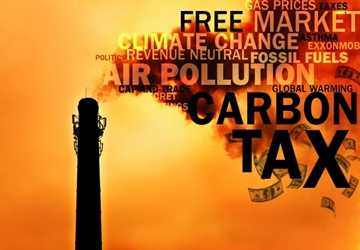Climate change mitigation refers to a subfield of climate economics that deals with actions to reduce the speed and severity of future climate change. Possible reducing agents are:

First, fossil fuel subsidies must end.
Many countries provide huge subsidies to the fossil fuel industry. Research shows that in the absence of new taxes, removing trade barriers and subsidies at the industry level would increase productivity and reduce environmental impact. If these subsidies were removed, greenhouse gas emissions would drop significantly and jobs in the renewable energy sector would increase.
Removing fossil fuel subsidies will have different consequences, depending on the subsidies removed and the cost and availability of other energy sources. There is also the issue of carbon leakage, which occurs when an energy-intensive company loses government support but moves its operations to an environmentally unfriendly country, resulting in an overall increase in global emissions.
Carbon price
A "carbon price" system assigns a monetary value to this pollutant in order to reduce carbon dioxide emissions. Emissions trading, results-based climate finance, credit systems and many others are viable options for determining costs. Additionally, a carbon tax would allow governments to tax greenhouse gas emissions, another way carbon pricing could help governments by raising more money.

Carbon tax
Governments can use the cost of greenhouse gas emissions to determine their corporate tax rate. Carbon taxes are particularly beneficial because, once introduced, they can help governments financially, reduce greenhouse gas emissions, or both. It is almost universally understood that a carbon tax is the most effective way to achieve a significant and rapid response to carbon emissions and climate change with the least amount of economic effort. However, the tax has run into resistance amid concerns that it is regressive and hurts the poor more than anyone else because they spend more money on energy. Despite nearly unanimous support, many questions about tax collection and transfers remain unclear. How the recently accumulated tax revenue is distributed is an important question.
All or part of the revenue from the carbon tax can be used to alleviate poverty.
Changes in the underlying structure of the market
In the 1990s, several countries recognized the potential impact of market-based reforms on energy use, energy efficiency, and greenhouse gas emissions.
Emissions trading
In addition to command-and-control laws, such as carbon taxes, governments can use market-based technologies to reduce emissions. Emissions trading is a strategy to reduce greenhouse gas emissions by limiting the amount of pollutants that can be produced. Under this system, the government limits pollution from all polluters and then issues permits, either through allocation or auction, to facilities that allow them to produce a specific amount of CO2-equivalent emissions. In an emissions trading system, an organization's ability to pollute is limited by the redefinition permits it holds. Therefore, polluters can only increase their emissions after obtaining permission from their suppliers. Many financial professionals prefer this method because it is market-based and inexpensive.
Open energy markets to competition
Several countries, including the US, EU, Latin America and Africa, have opened and restructured their energy markets. Although these regulations are designed to encourage competition in the market, they can have a significant impact on emissions. Reforms could better signal the issue price to the market.


